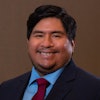ASHEVILLE, N.C.
The flagship campus of the University of Tennessee system is working on an agreement to allow members of the Eastern Band of Cherokee Indians to pay in-state tuition to attend the school.
The University of Tennessee at Knoxville is about 80 miles from the Qualla Boundary, the tribe’s lands in western North Carolina — far closer than any comparably sized school in North Carolina. The school charges $5,290 a year for in-state tuition and out-of-state tuition is $16,360.
The lower tuition will be given in trade for Eastern Band archaeological services, said Russell Townsend, who works for the tribe’s Historic Preservation office and often collaborates with the university.
“There’s been a handshake on it,” Townsend said.
Similar agreements are already in place in the university system, school spokesman Tom Milligan said. The tribe plans to seek similar arrangements with other Tennessee state schools, as well as public universities in Georgia and South Carolina.
Eight of the 652 members of the Eastern Band who are enrolled in post-secondary education are attending the university in Knoxville, said Juanita Wilson, the tribe’s deputy administrative officer.
The tribe helps pay tuition and other expenses, usually covering the entire amount for in-state tuition and paying only a portion for students who attend a private university or one that is out of state.
The agreement will probably not be final in time for the spring semester, Townsend and Milligan said.
About 7,500 of the Eastern Band’s 13,300 members live on the tribe’s 58,000-square-mile property in western North Carolina.
—Associated Press
© Copyright 2005 by DiverseEducation.com





















